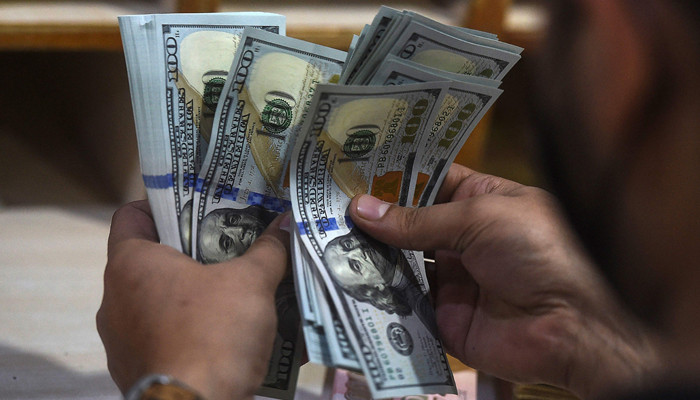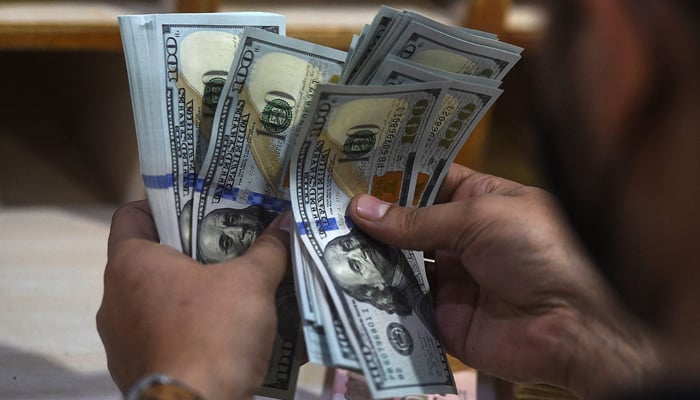Realisation of $300m loan takes forex reserves past $4bn mark
The forex reserves held by the State Bank of Pakistan (SBP) got a boost after the realisation of a $300 million commercial loan that pushed the money held by central bank past the $4 billion mark.
A statement issued by the central bank showed that the reserves held by the central bank and commercial banks stood at $9.3 billion as of June 23.
Out of the $9.3 billion, the reserves held by the SBP were $4.06 billion, while the reserves held by commercial banks stood at $5.27 billion.
The reserves position of the country has been in the negative territory for the last few months as Pakistan was struggling to get approval for the ninth review of the Extended Fund Facility (EFF) under the International Monetary Fund (IMF).
However, Pakistan failed to achieve the tranche and the programme ended without its completion on June 30.
But the day it ended, Pakistan and the IMF reached a long-awaited staff-level agreement (SLA) on a $3 billion “stand-by arrangement” (SBA), the global lender announced.
The $3 billion funding, spread over nine months, is higher than expected for Pakistan. The country was awaiting the release of the remaining $2.5 billion from a $6.5 billion bailout package agreed in 2019, which expired on Friday.
With sky-high inflation and foreign exchange reserves barely enough to cover one month of controlled imports, Pakistan has been facing its worst economic crisis in decades, which analysts say could have spiralled into a debt default in the absence of the IMF deal.
The deal comes after an eight-month delay and offers some respite to Pakistan, which is battling an acute balance of payments crisis and falling foreign exchange reserves.
In the statement issued today, the IMF said since the completion of the combined seventh and eighth reviews under the 2019 EFF in August 2022, Pakistan’s economy faced several external shocks, such as the catastrophic floods in 2022 that impacted the lives of millions of Pakistanis and an international commodity price spike in the wake of Russia’s war in Ukraine.
As a result of these shocks as well as some policy missteps — including shortages from constraints on the functioning of the forex market— economic growth has stalled. “Inflation, including for essential items, is very high. Despite the authorities’ efforts to reduce imports and the trade deficit, reserves have declined to very low levels,” the IMF’s statement said.
Moreover, it said liquidity conditions in the power sector also remain acute, with a further buildup of circular debt and frequent loadshedding.
The global lender said the new SBA would support Pakistan’s immediate efforts to stabilise the economy from recent external shocks, preserve macroeconomic stability and provide a framework for financing from multilateral and bilateral partners.
“The new SBA will also create space for social and development spending through improved domestic revenue mobilisation and careful spending execution to help address the needs of the Pakistani people.”
The IMF further added that steadfast policy implementation is key for Pakistan to overcome its current challenges, including through greater fiscal discipline, a market-determined exchange rate to absorb external pressures, and further progress on reforms, particularly in the energy sector, to promote climate resilience, and to help improve the business climate.
For all the latest business News Click Here


